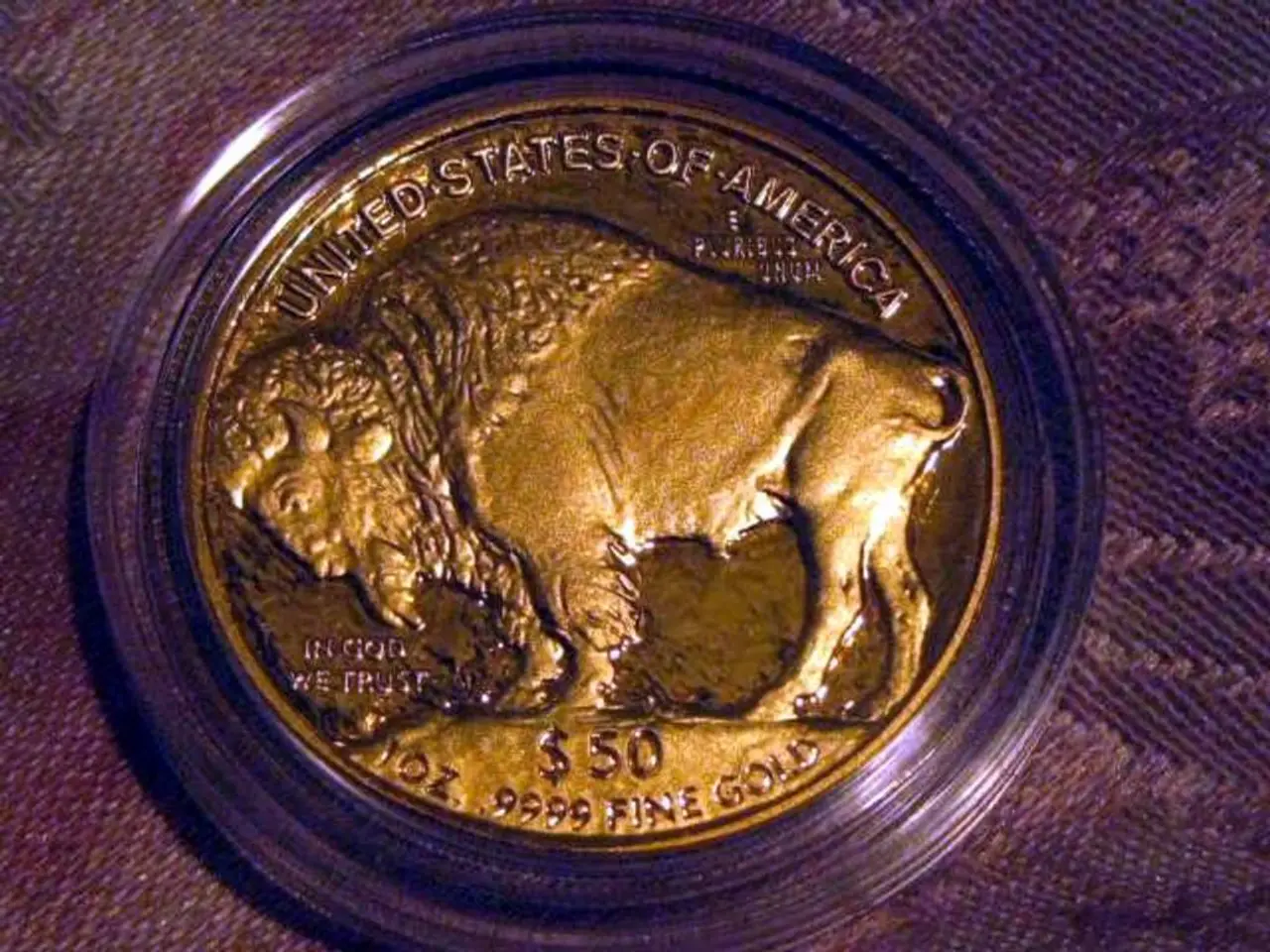Federal Reserve maintains elevated interest rates in the U.S.
In the current political landscape, the relationship between President Donald Trump and Federal Reserve Chairman Jerome Powell has become a subject of intense scrutiny, centering around the issue of interest rate policy.
Trump has been vocal in his demands for Powell to lower interest rates, claiming that it is necessary to boost the economy. However, Powell and the Federal Reserve have remained steadfast, keeping the key interest rate unchanged, with the range between 4.25 and 4.5 percent as of July 2025 [1].
The President's persistence has been met with resistance from Powell, who emphasizes the importance of a cautious approach. He cites the robustness of the US economy and labor market as reasons for hesitating to cut rates, and also expresses concerns about the potential risks of causing inflation to resurge or unnecessarily harming the labor market [1][2][4].
This disagreement has taken a public turn, with Powell maintaining the Fed's independence in monetary policy decisions while Trump and some of his cabinet members, including Treasury and Commerce officials, openly criticize the Fed's stance and call for immediate rate cuts [2].
The International Monetary Fund (IMF) has voiced its concerns about increased import prices in the US due to tariffs, with companies passing on higher costs to their prices [3]. The tariffs are borne by importers, retailers, and ultimately consumers in the US.
Trump's push for lower interest rates is driven by his urgent political and economic needs, while Powell's approach is data-driven and focused on balancing inflation and labor market effects amid trade uncertainty [1][2][3][4].
It's worth noting that Powell's term ends in May, but contrary to Trump's suggestions, he does not decide on the interest rate alone - the Board of Governors does [5]. Market observers anticipate a rate cut at the earliest by the September meeting.
The question of whether a US President can dismiss a central bank chairman is not fully clarified in law, and the hurdles for such a move are high due to the need for "good cause" and the legal question of a President's ability to dismiss a central bank chairman [6].
This standoff between Trump and Powell underscores the delicate balance between political and economic interests, and the importance of maintaining the independence of central banks in making monetary policy decisions.
References: 1. CNN 2. The New York Times 3. The Washington Post 4. Bloomberg 5. The Wall Street Journal 6. The Hill
The President's calls for lower interest rates stem from his political and economic needs, intertwining finance and business with the realm of politics. The Federal Reserve, led by Powell, prioritizes a data-driven approach to maintain the balance between inflation and labor market effects in general-news contexts.
This disagreement over interest rate policy highlights the intricate interplay of economic and political interests, emphasizing the significance of central bank independence in monetary policy decisions, which transcends into the broader business and politics spectrum.




